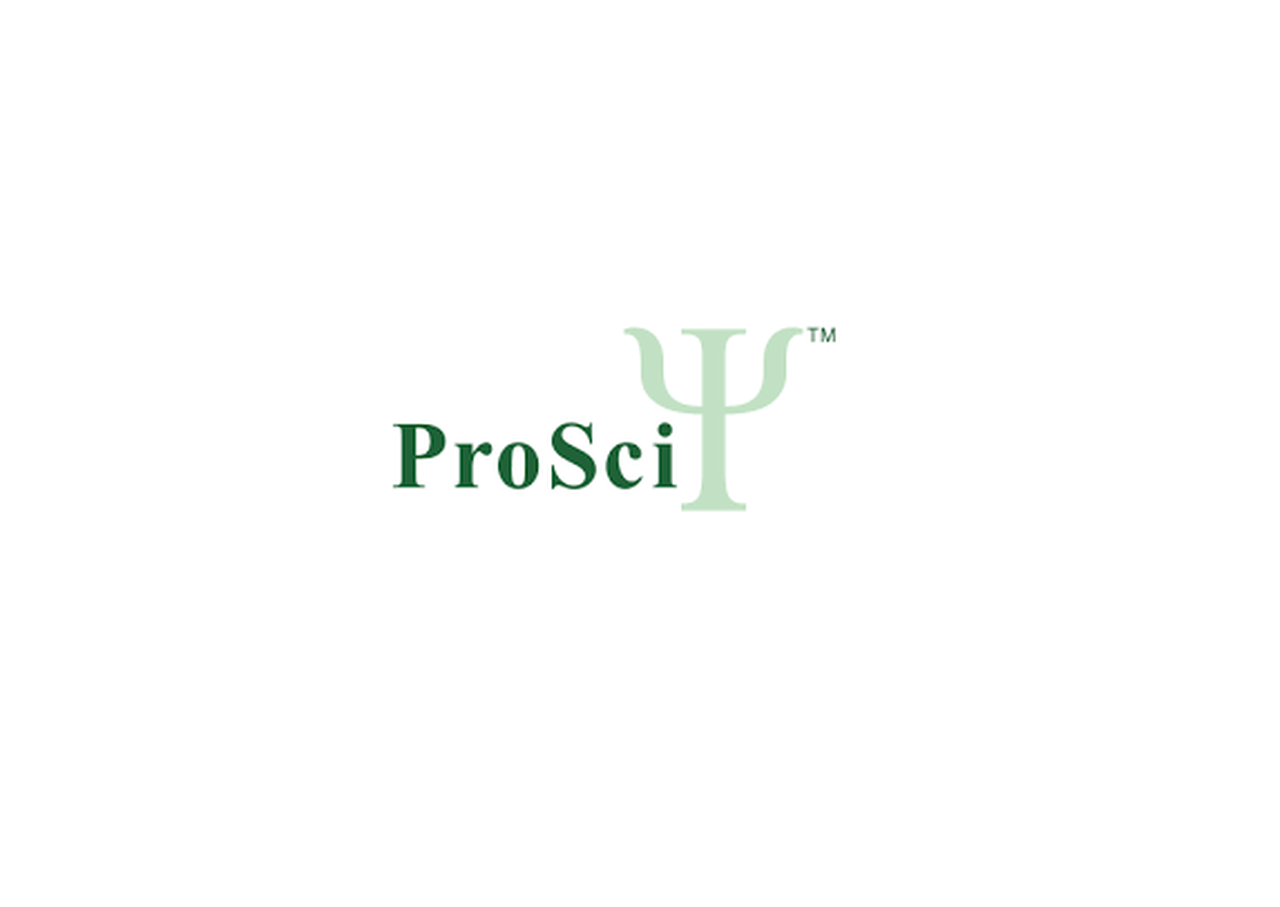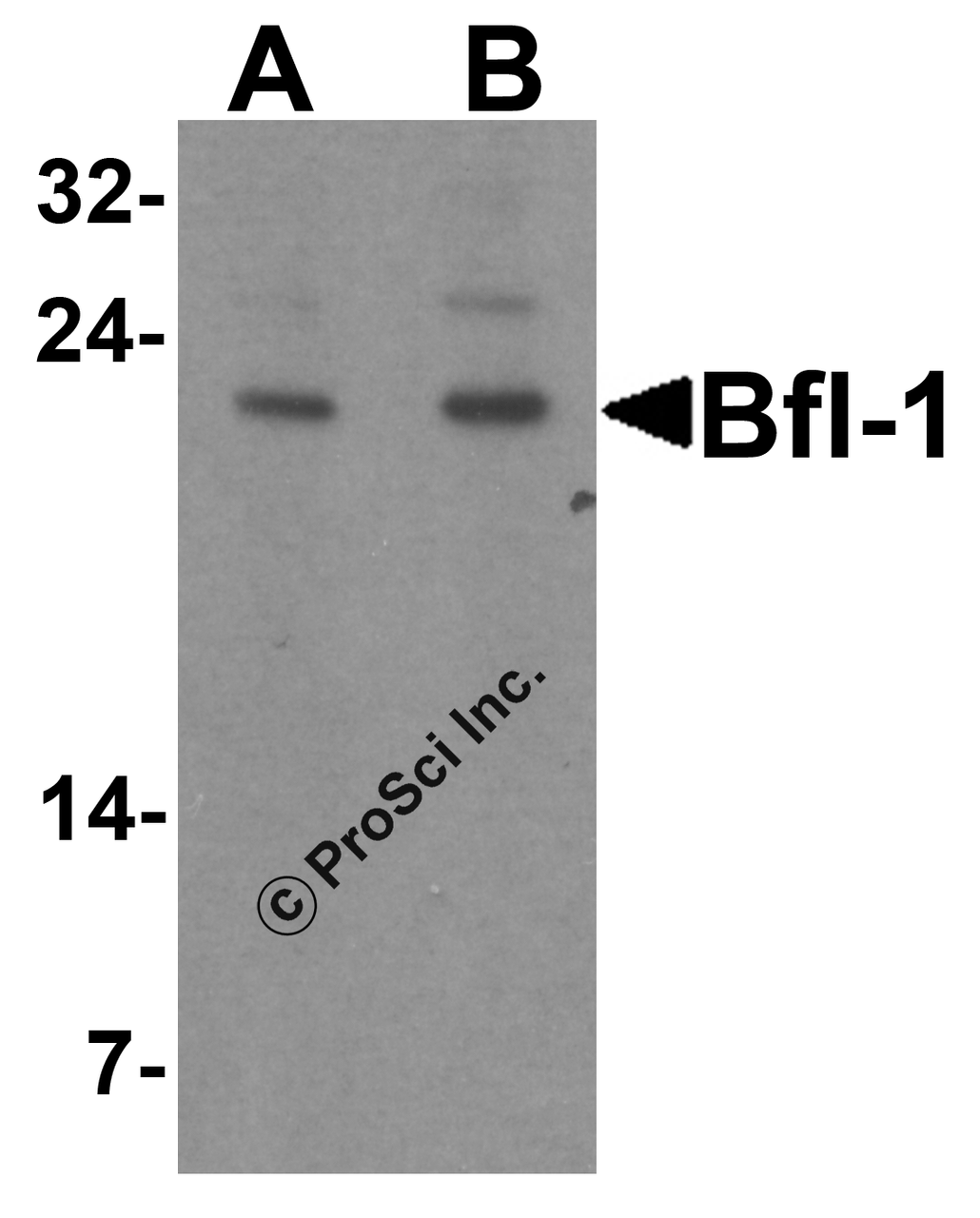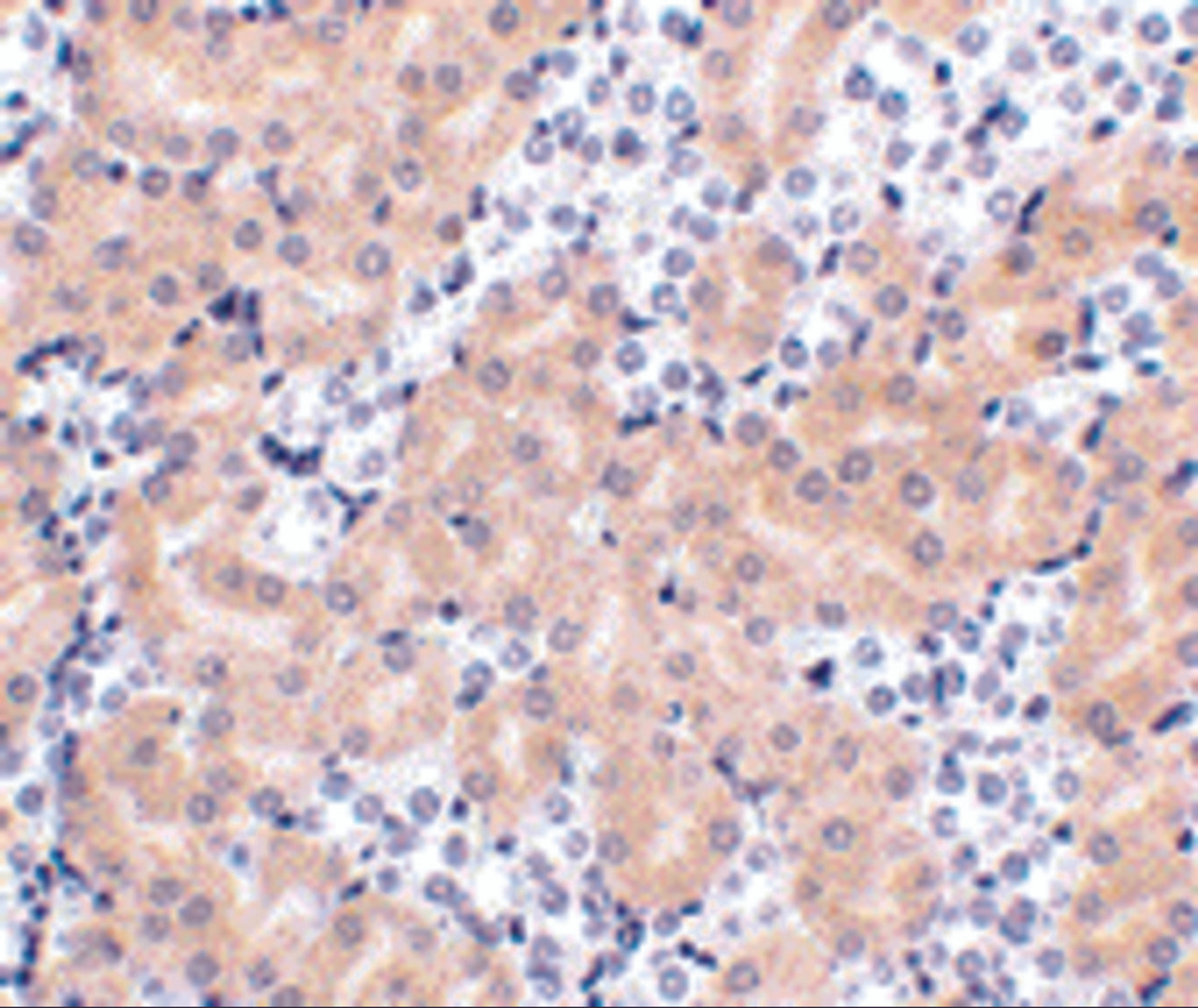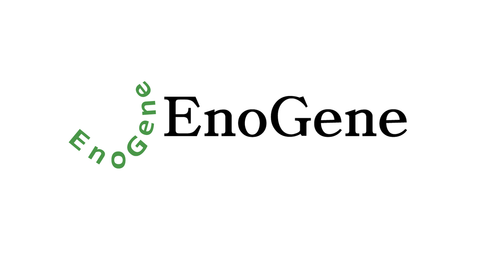Product Description
Bfl-1 Antibody | 3875 | ProSci
Host: Rabbit
Reactivity: Human, Mouse, Rat
Homology: Predicted species reactivity based on immunogen sequence: Bovine: (87%)
Immunogen: Bfl-1 antibody was raised against a 14 amino acid synthetic peptide from near the amino terminus of human Bfl-1.
The immunogen is located within the first 50 amino acids of Bfl-1.
Research Area: Apoptosis, Neuroscience
Tested Application: E, WB, IHC-P, IF
Application: Bfl-1 antibody can be used for the detection of Bfl-1 by Western blot at 1 - 2 μg/mL. For immunofluorescence start at 20 μg/mL.
Antibody validated: Western Blot in human samples; Immunohistochemistry in mouse samples and Immunofluorescence in mouse samples. All other applications and species not yet tested.
Specificiy: At least two isoforms of Bfl-1 are known to exist; this antibody will detect both isoforms.
Positive Control 1: Cat. No. 1305 - Human Kidney Tissue Lysate
Positive Control 2: N/A
Positive Control 3: N/A
Positive Control 4: N/A
Positive Control 5: N/A
Positive Control 6: N/A
Molecular Weight: Predicted: 18, 19 kDa
Observed: 22 kDa
Validation: N/A
Isoform: N/A
Purification: Bfl-1 Antibody is affinity chromatography purified via peptide column.
Clonality: Polyclonal
Clone: N/A
Isotype: IgG
Conjugate: Unconjugated
Physical State: Liquid
Buffer: Bfl-1 Antibody is supplied in PBS containing 0.02% sodium azide.
Concentration: 1 mg/mL
Storage Condition: Bfl-1 antibody can be stored at 4˚C for three months and -20˚C, stable for up to one year. As with all antibodies care should be taken to avoid repeated freeze thaw cycles. Antibodies should not be exposed to prolonged high temperatures.
Alternate Name: Bfl-1 Antibody: GRS, BFL1, ACC-1, ACC-2, HBPA1, BCL2L5, GRS, Bcl-2-related protein A1, Bcl-2-like protein 5, Bcl2-L-5
User Note: Optimal dilutions for each application to be determined by the researcher.
BACKGROUND: Bfl-1 Antibody: Apoptosis plays a major role in normal organism development, tissue homeostasis, and removal of damaged cells and is caused by caspase activation. Proteins that comprise the Bcl-2 family appear to control the activation of these enzymes. One such member is multi-domain antiapoptotic protein Bfl-1, which is overexpressed in stomach and other cancers. Bfl-1 can interact with Bax and suppress apoptosis by inhibiting the release of cytochrome c and caspase-3 activation. It is upregulated in cisplatin-resistant human bladder tumors, suggesting that its expression may be important for cisplatin resistance and inhibition of apoptosis in cancer cells. At least two isoforms of Bfl-1 are known to exist.
 Euro
Euro
 USD
USD
 British Pound
British Pound
 NULL
NULL












